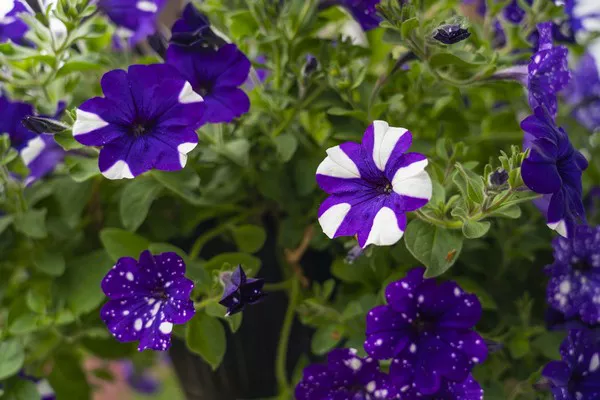Petunias are among the most beloved and widely cultivated flowers in gardens worldwide. Known for their vibrant colors, versatility, and ease of care, petunias have become a staple in both amateur and professional gardening. Whether you’re a seasoned horticulturalist or a novice gardener looking to brighten up your landscape, understanding the nuances of petunias can enhance your gardening experience significantly.
Petunias (genus Petunia) belong to the family Solanaceae, which includes other well-known plants such as tomatoes, potatoes, and tobacco. Native to South America, specifically Argentina and Brazil, petunias were first discovered by European explorers in the 19th century. Since then, extensive breeding efforts have resulted in a wide array of cultivars with diverse colors, sizes, and growth habits.
Taxonomy and Botanical Characteristics
Taxonomy: Petunias are classified under the genus Petunia and are further divided into various species and hybrids. The taxonomy of petunias can be complex due to extensive hybridization over centuries.
Botanical Characteristics: Petunias are herbaceous annuals or perennials in warm climates, typically growing as sprawling plants with sticky, hairy leaves. The flowers are trumpet-shaped, ranging in size from small to large depending on the cultivar. They come in almost every color imaginable, from vibrant purples, pinks, and reds to soft pastels and even bi-color combinations.
Cultivation and Growing Conditions
Successful cultivation of petunias depends largely on understanding their specific growing requirements:
Climate: Petunias thrive in moderate to warm climates and prefer full sun, although some varieties can tolerate partial shade.
Soil: Well-drained soil is essential for petunias to prevent root rot. They prefer slightly acidic to neutral soil pH.
Watering and Fertilization: Regular watering is crucial, especially during dry periods, but care should be taken not to overwater. Fertilize petunias regularly with a balanced fertilizer to promote healthy growth and abundant blooms.
Propagation: Petunias can be propagated from seeds or cuttings. Seeds are tiny and require light for germination. Cuttings root easily in moist soil or water.
Popular Varieties and Hybrids
The popularity of petunias stems from their diversity. Some of the most popular types include:
Grandiflora Petunias: Known for their large, showy flowers, grandiflora petunias are often used in containers and hanging baskets.
Multiflora Petunias: These varieties produce smaller flowers but in greater quantities, making them ideal for mass plantings and ground cover.
Milliflora Petunias: Tiny flowers characterize milliflora petunias, which are perfect for borders and edging due to their compact size.
Wave Petunias: These cultivars have a spreading or trailing habit, making them excellent for ground cover and hanging baskets.
See Also: 15 Best Flowers to Plant in the Summer
Uses in Gardening and Landscaping
Petunias offer a multitude of uses in garden design:
Container Gardening: Their versatility in color and growth habits makes petunias perfect for container gardens on patios, balconies, and window boxes.
Bedding Plants: Mass plantings of petunias create striking displays of color in garden beds and borders.
Hanging Baskets: Trailing varieties like Wave petunias cascade beautifully over the edges of hanging baskets, adding a cascade of color.
Mixed Plantings: Petunias combine well with other annuals and perennials, enhancing mixed plantings with their vibrant blooms.
Pests and Diseases
While generally low-maintenance, petunias are susceptible to certain pests and diseases:
Pests: Common pests include aphids, spider mites, and caterpillars. Regular inspection and appropriate pest management strategies are necessary.
Diseases: Petunias can be affected by fungal diseases such as powdery mildew and botrytis blight. Proper spacing, good air circulation, and avoiding overhead watering can help prevent these issues.
Cultural Significance and Symbolism
Beyond their practical uses in gardening, petunias hold cultural significance and symbolism:
Symbolism: Petunias symbolize various sentiments depending on their color, including admiration, resentment, and soothing calmness.
Art and Literature: Petunias have inspired artists and writers throughout history, appearing in paintings, poems, and novels.
Conclusion
In conclusion, petunias stand out as versatile, colorful additions to any garden. Whether you’re a beginner or an experienced gardener, incorporating petunias into your landscape can elevate the aesthetic appeal while providing seasonal interest and charm. By understanding their taxonomy, cultivation needs, popular varieties, and uses in gardening and landscaping, you can make informed choices to successfully grow and enjoy these beautiful flowers.


